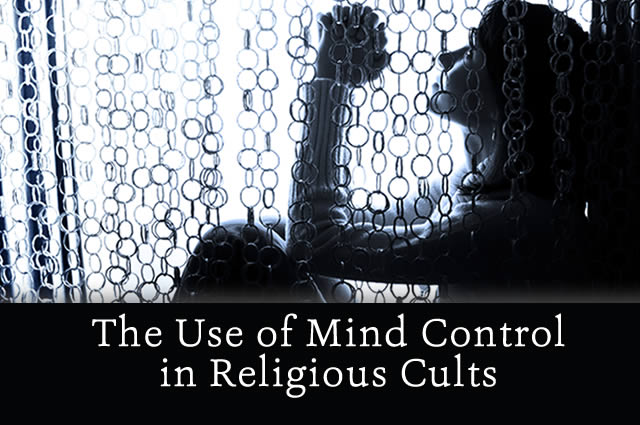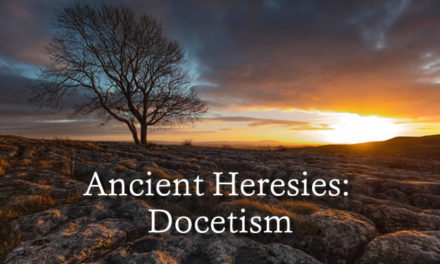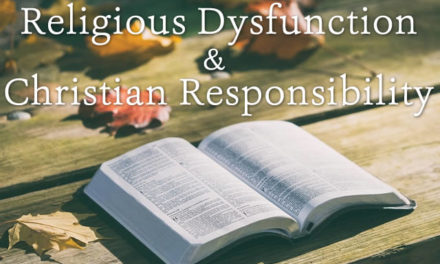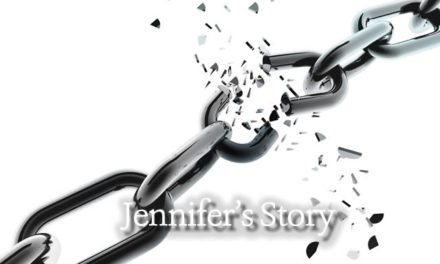Do you remember the pictures in the media of the suicide deaths of 900 People’s Temple members in Jonestown, Guyna?
Or, do you remember the more recent reports of the suicide deaths by members of the Heaven’s Gate UFO cult?
And, why would the Branch Davidians stay in their compound if they thought it meant death?
Somewhere in the mind of each person in each situation there was a life or death decision they thought they had to make. Given their perceived circumstances they thought death was the only honorable, or viable, choice. Of course we know differently. But, what is it in the cult milieu that leads to such stark alternatives?
Many in the counter-cult community believe it is attributable to the influence of mind control techniques.
Some disagree with that model as an explanation. There is no attempt here to defend one model against another.
Rather, the purpose here is to explain the process of undue influence that can occur in the mind control model, and to consider the objections.
POWs and Freshmen
At the end of the Korean War Americans learned a new word, brainwashing. Many of the American POWs had experienced a very thorough-going process of thought reform. The Communists had imposed a rigorous process of punishment and reward together with indoctrination that led some of the POWs to express a desire to remain in the Marxist country. Among those who returned all quickly reverted to the worldview and value system in which they were raised. In other words brainwashing does not last if it is not maintained.
All the principles of thought reform used by the communists have been used by most cults. There is however, a vast difference in them. The communists used severe physical punishments and deprivation, even the threat of execution. Cults hold out a much less severe, and more subtle, form of reward and punishment which people cooperate with because they believe it to be what is good for themselves.
The term brainwashing is used when the process begins with an adversarial relationship, and is externally imposed with coercive methods. We use the term mind control when it begins with a friendship, is very subtle and persuasive, and leaves coercion out until control is achieved. Both are categorized as thought reform.
Even though our soldiers viewed their jailers as the enemy, they succumbed to the process. Cult recruits see the leaders as friendly, supportive and caring. This is the greatest single difference. This difference is an advantage to the cult because the recruit lets down his guard to a friend, whereas his guard is up to a perceived enemy. But without a support network, as well as knowledge of truth, even our guard can be overcome.
College students are often a target for cults because they are isolated from the support network of family, friends, and church. It isn’t unusual to be lonely and homesick. The cult recruiter comes along with an idealistic message offering friendship and significance. A student may lack the knowledge that would enable him to discern the trouble he faces.
Any emotionally traumatic experience can create a vulnerability to deception.
Dr. Robert J. Lifton conducted a thorough study of our returned POWs to discover the process used to reform their thinking. His findings are published in his book Thought Reform and the Psychology of Totalism. Though his focus was on prisoners of war the criteria carry over to the cult mind control model. Let’s look at them. As you read the descriptions of each criteria think of the old Soviet Union and what you know of their Cold War practices. That model serves as an excellent example of mind control attempted on a large scale.
Milieu Control
Milieu is the environment in which we live. It includes all our interactions on a daily basis. It includes the information we take in and the information we give out. It includes the people, places, events, and ideas that pass through our daily life.
If these can be controlled the individual will become isolated from his support network and therefore vulnerable to influence. For example the Soviet citizen could get his news only from a Party affiliated source because western broadcasts were jammed.
Christians are to be salt and light in the world. We must be in the world but not of it. That implies interaction, not isolation. The Truth will stand any test.
Mystical Manipulation
In any cultic group, or Marxist government, there is a higher calling, an almost utopian goal for which the group strives. The follower accepts that his group is the only one that is equipped to achieve this goal. With that assumption this mystical ideal can be achieved if they will give their all in its pursuit. If they fail to give their all they will fall short of their goal. This is a powerful incentive for religious cults, as if God Himself were directing their actions.
Lifton makes the point that such manipulation requires a level of trust that is difficult, if not impossible, to maintain for a long time. When trust is lost the followers see through the manipulation and cease to respond.
Among the cults a demonstrated false prophecy can put an end to the leaders ability to manipulate followers on to greater effort. The dismal statistics in the Watchtower’s own Yearbooks after their 1975 false prophecy illustrates this dramatically.
Manipulation is completely out of place for the Christian. Sometimes admonition and exhortation are replaced with manipulation. Where this happens it should be resisted.
In the political arena the utopian goal can be achieved by actions consistent with ideological purity. In the religious arena ideology is called doctrine. To achieve the utopian goal anything impure must be removed. The leaders get to decide what that purity is in totalistic systems. The followers strive mightily until they fail. Then their failure is written off as an example of the impurity that held the group back from achieving its goal. As Christians we know that the Ten Commandments are pure and true but man is unable to obey them completely. Our “purity” is Christ’s purity imputed to us through faith in His blood.
In totalistic systems the leaders exhort the followers to search themselves for anything impure that would hold the group back and defeat them. This causes the followers a lot of self doubt leading to a rigid adherence to the rules of the system. The Pharisees are an excellent example.
An example in communist history is the Chinese Cultural Revolution and also the Cambodian experience under Pol Pot where everyone was forced into agrarian work, an ideological ideal, according to the Khmer Rouge. Phnom Penh became a ghost town.
Cult of Confession
Closely related to the above is confession. Not legitimate confession to God, or someone wronged, but improper confessions. Any personal weakness, bad thought, failure to give 100% to the group, must be confessed. Even wrongs not committed can be confessed to help the group achieve purity. Our innate sense of guilt because of Original Sin makes people vulnerable to this.
Confession can have a cathartic effect on the person confessing. It can also provide leverage to use on the person in the future as often happens in cultic systems. Open confession sessions can create a sense in the group of personal uncertainty. If a seemingly strong person is confessing the weaker followers will feel less sure of their own purity. Public confessions can eliminate the sense of boundaries we need to maintain our individuality.
In the communist world, especially China, when a political dissident is tried and found guilty he will frequently make a public confession of his “guilt.” This justifies the political system that will then kill him to purify the “workers paradise”.
Christians should only confess actual wrongdoing to God and the one wronged.
Sacred Science
Lifton said, “The totalist milieu maintains an aura of sacredness around its basic dogma, holding it out as the ultimate moral vision for the ordering of human existence” (page 427). It is beyond questioning. To question it is to blaspheme. It is this questioning that must not be allowed in such a system. To allow questions implies that an issue is unsettled, and therefore uncertain. Questioning will also spread to others and undermine the hold of the leadership.
In the Soviet Union the Party was the ideological master. In every military unit there was a “zampolit”, or political officer, who kept everyone in line with the Party ideology. When Gorbachev instituted “glasnost” (openness) outside sources of information could now be accessed. The sacred science of the Party line could now be questioned. The people were now empowered and as a result the communist system had to go. This is what every cult leader must fear most. The Watchtower calls it “independent thinking” and condemns it as an “evidence of pride” (Watchtower, 1/15/83, page 27).
For a Christian questioning is not a sin. It is not even doubt, but unbelief, that is sin. The examples are many from Genesis to Revelation that God wants a two-way relationship with His own (Job 9, 10 and 38).
We will discuss the remaining mind control criteria in Part 2 next month, and consider some objections raised to them.
Lifton’s Eight Criteria
Milieu Control – the control of the environment including information, associations, time, and energy work to exclude any opportunity for opposition while also promoting the ‘party line’.
Mystical Manipulation – this is the ‘higher calling’ for the follower to be a part of a utopian goal which requires his full devotion. The followers see the leaders as having achieved this higher calling hence they are worthy to be followed.
Demand For Purity – the utopian goal can only be achieved by purity of devotion. Any failure to succeed means impurity exists somewhere and will be searched out by those in control.
Cult of Confession – Failure to succeed means confessions must be made. Any weakness or failure, real or perceived, are to be confessed for the sake of the group. Even confessions where no wrong was actually done can spur the group to more purity.
Sacred Science – The ideology, doctrine and mission of the group are so sacred that they must not be doubted or questioned. To do so is one of the worst offenses possible. However, without the option of questioning, a lie cannot be uncovered.
Loading the Language – Certain words and phrases are so loaded with meaning that stark choices are implied leading to the end of critical thinking.
Doctrine Over Person – What you see, hear or think is irrelevant in the face of the groups doctrine. You must submerge your opinions in the group’s worldview.
Dispensing of Existence – Only those who are committed to the group are valued. Those who oppose or betray the group can be dismissed, defamed, disfellowshipped, or killed.
Ye shall know the truth, and the truth shall make you free.
If the Son therefore shall make you free, ye shall be free indeed.
John 8:32, 36
By David Henke






